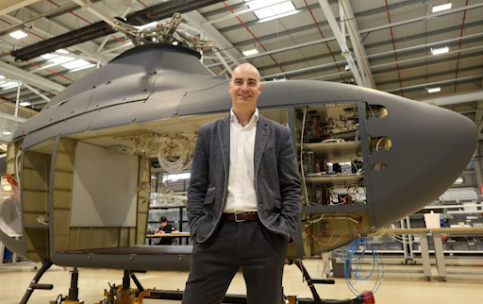 |
| The Proteus autonomous helicopter is being assembled by the Leonardo factory |
The Leonardo factory in Yeovil, Somerset, whose history goes back to the era of the Second World War, is now becoming a hub for innovation in the field of unmanned technologies. This company, which produced the legendary *Spitfire* and *Seafire* aircraft, and later *Sea King*, *Lynx* and *Merlin* helicopters, is now developing the revolutionary *Proteus* unmanned helicopter for the Royal Navy of Great Britain.
The Yeovil plant, formerly associated with Westland Helicopters, played a key role in the production of military equipment. In the 1940s, Spitfire fighters and their Seafire carrier-based version were assembled here, which were completed in January 1949. Later, the company focused on helicopters: in the 1960s, serial production of the Sikorsky S-61 Sea King began, which was supplied not only to Great Britain, but also to Germany, Norway, and India. In the 1980s, the development of the multipurpose Merlin (EH 101) began, the first prototype of which was presented in 1987.
The current stage of the plant's development is marked by the Proteus project, an unmanned helicopter being developed by order of the Royal Navy. This demonstration vehicle is expected to become the world's first helicopter capable of flying in fully autonomous mode. The tests are scheduled for the end of 2025, underscoring the UK's desire to strengthen its technological leadership in naval aviation.
The experience of creating *Sea King* and *Merlin*, known for their reliability, formed the basis of new developments. For example, *Merlin* is still used for search and rescue operations and cargo transportation, and *Proteus* will continue this line by adding autonomy and integration with artificial intelligence systems.


.jpg)
.jpg)
.jpg)
.png)

.jpg)









.jpg)

No comments:
Post a Comment